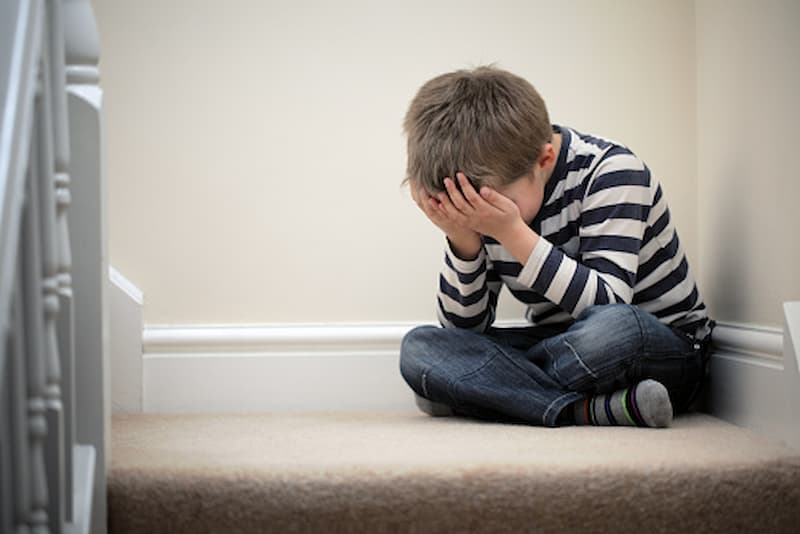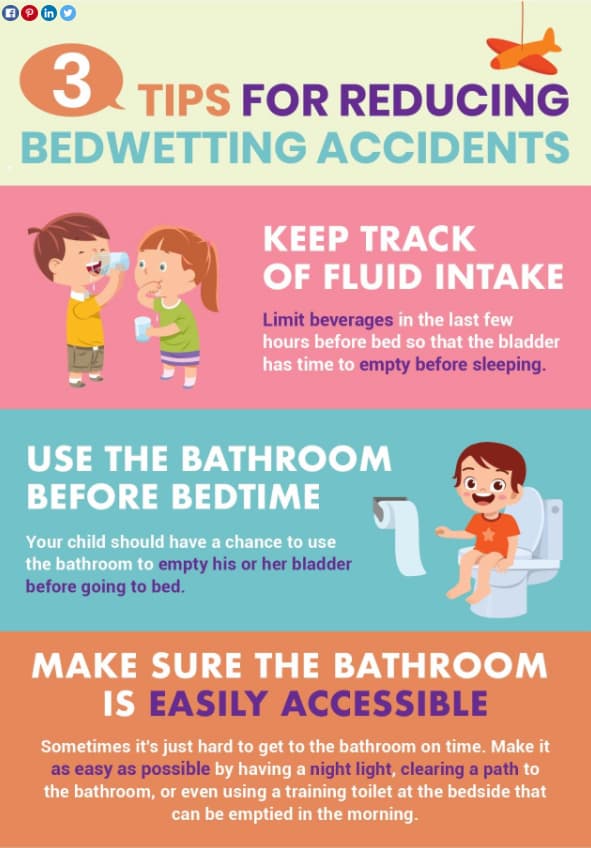
Bedwetting in children is more common than you think, affecting one in six children beyond the age of 5. There are many causes of bedwetting, so if your child is wetting the bed, don't be embarrassed. This guide will show you what it takes to help them overcome it.
What is Bedwetting?
Bedwetting, also called nighttime incontinence or nocturnal enuresis, is the involuntary passage of urine at night during sleep. It can be a problem for children of any age, but it's most common in children of school age. Bedwetting can be a source of great frustration and embarrassment for children, affecting their school performance and preventing them from participating in school camps. It can also be heartbreaking for parents to see their children suffer as a result of a situation which they have no control over.
Most bedwetting cases are not caused by a physical or medical problem. In fact, bedwetting is considered a normal part of childhood development. Most children will outgrow nighttime incontinence on their own within a few years.
What Causes Bedwetting?
There are many bedwetting myths out there, so it's important to separate fact from fiction. Here are some common bedwetting myths, busted:
Bedwetting is caused by laziness or attention-seeking behaviour
This is simply not true. Bedwetting is not a choice, and children who wet the bed cannot help it.
Bedwetting is a psychological problem
There is no evidence to support this claim. While some children who wet their beds previously suffered from psychological stress, there is no evidence to prove that all children with enuresis have a psychological or emotional problem. While it may not be a sign of stress, bedwetting can have an emotional impact on children if it's not addressed.
Bedwetting is caused by constipation
While constipation can sometimes contribute to bedwetting, it is not the sole cause.
Bedwetting is a sign of poor bathroom habits
It's easy for a child to practise daytime toilet habits, but they have no control over their body's release of urine when they are asleep. Simply put, they did not intend for it to happen. Bedwetting can be caused by a variety of factors, including stress, sleep issues or medical conditions.
There are many possible causes of bedwetting, including:
- Small bladder systems cannot hold urine the entire night
- Urinary tract infection can cause an increase in urinary frequency and urgency, which can lead to bedwetting
- Stressful events, such as the arrival of a new baby in the family, parental divorce, or moving to a new house or school, have been linked to some cases
- Sleep disorders like sleep apnea
- Hormonal problems, especially with the hormone vasopressin that helps the body hold on to water, may play a role
- Beverages with caffeine
- An overactive bladder causes premature bladder contractions, resulting in a strong urge to urinate
- Symptom of diabetes mellitus
How Can You Tell If Your Child Has a Bedwetting Problem?
If you are concerned that your child may be bedwetting, there are a few ways to determine if this is the case. A single night of involuntary urination while sleeping does not imply nocturnal enuresis. Perhaps your child was utterly exhausted, and it can be difficult to wake from a deep slumber, especially if the body is resisting.
One way to find out if you have a bedwetting child is to keep track of wetting incidents by marking down on a calendar when your child wets the bed. Another way to tell if there is a problem is by checking your child's underpants for evidence of wetting. If your child is bedwetting more than once a week, then it is likely that he or she has a bedwetting problem. If you are unsure, you can always consult with your child's doctor.
What are Effective Treatments for Bedwetting?
There are many treatment recommendations for bedwetting, but what works for one child may not work for another. Some common non-pharmacological treatments include:
Bladder training
This involves teaching the child to delay urination until a specific time or to drink less fluids in the evening.
Bedwetting alarm
Enuresis alarms, also known as bedwetting alarms, are a popular treatment option for bedwetting. They work by emitting a loud sound when urine is detected in the bedding, which helps to train the child's bladder to wake them up and use the toilet during the night. Most children see improvement in their bedwetting after using an enuresis alarm for a few weeks.
Counselling or motivational therapy
Counselling can help your child understand and cope with their bedwetting. It can also help identify any underlying psychological issues that may be contributing to the problem.
Developing a nighttime routine in the bathroom
Going to the bathroom before bedtime will prevent your child from passing urine during sleep. Letting him or her use the bathroom at the same time every night forms a habit. This is an effective strategy to prevent involuntary urination while sleeping.
Source: UCI Pediatric Urology
Children who suffer from bladder infections or are diagnosed with a medical condition that causes nighttime wetting may require medications. If a blockage in the urinary tract is the cause of nocturnal enuresis, a surgical treatment may be prescribed by your child's healthcare provider.
Tips for Preventing Nocturnal Enuresis in Children
Parents play an important role in their children's lives, especially when it comes to dealing with bedwetting issues. They will be able to find a solution to improve the quality of life for their children if they look beyond the common symptoms of the problem. Here are some suggestions for dealing with nighttime urinary incontinence in children:
- Be patient and understanding because bedwetting is not a behaviour that your child can control, so punishing him or her will only make the problem worse.
- Help your child see bedwetting as a temporary problem that can be overcome with time and patience.
- Keep an eye on what your child drinks at night and discourage them from consuming drinks with caffeine, such as tea or sports drinks, as these have diuretic effects that can cause them to pass urine during sleep. In fact, you should limit their fluid intake altogether an hour before bedtime.
- Avoid criticism. Bedwetting can be a sensitive subject for children, so avoid making negative comments about it.
- Use mind conditioning techniques and reinforce positive behaviour. When your child does not wet the bed, praise him or her for it.
- Do not use diapers at night. Diapers may make bedwetting more likely to occur.
- Keep a record of your child's bedwetting episodes and volume of urine output. This can help you track patterns and identify potential causes.
If the success rate of your efforts in the management of bedwetting is lower than what you expected, and your child's nocturnal bedwetting has not improved, you may want to consult with a doctor. A thorough physical examination and review of your child's medical history are critical in determining any underlying condition that may be causing a lack of bladder control. Health professionals who specialise in this area can help you improve your child's bedtime routine and ensure they have a dry night.










